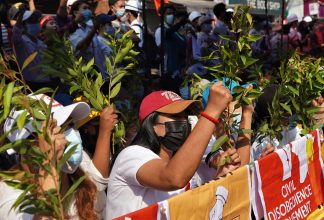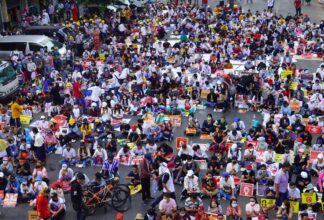Burma: Freedom of Expression in Decline According to Activists
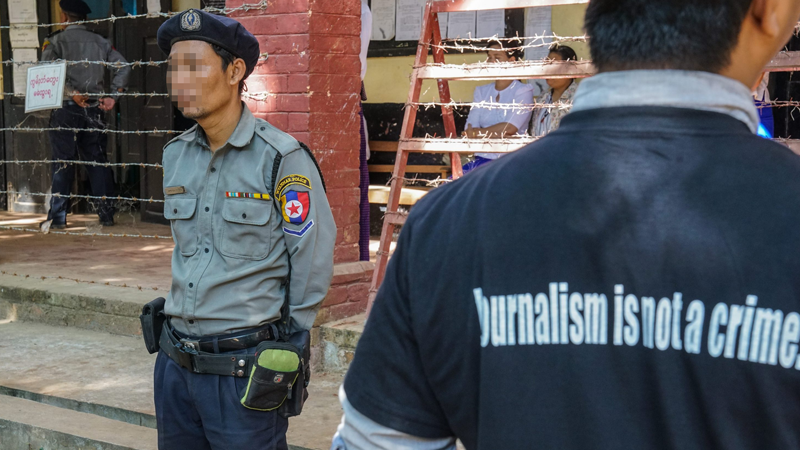
Freedom of expression is in decline in Burma and the number of criminal charges brought against critical voices is reaching new heights, according to a new research report by our Burmese partner Athan. The free-speech organisation argues that there is evidence that the situation has worsened drastically since Burma’s “transition to democracy” in 2015 when Aung San Suu Kui and the National League for Democracy (NLD) formed the country’s first civilian government in 54 years. Behind the scenes, the military remains in control, and the number of dissidents who face prosecution and imprisonment is growing.
Athan (“voice in Burmese”) is a key player in Burma when it comes to conducting research and advocacy for the promotion of freedom of expression. Their latest report – “A Chance to Fix in Time” – is an analysis of freedom of expression under the current government. According to the report, the number of prosecutions for criticising the government, military, parliamentarians, and other officials has increased year by year since the current government assumed office in 2016. Over the past four years, 1,051 people have faced such criminal charges, most commonly under the Telecommunications Law and the Peaceful Assembly and Peaceful Procession Law.
The people who have been prosecuted include 495 civilians, 326 activists, 67 journalists, 60 politicians, 27 religious individuals, and 24 artists, among others. Approximately 50 percent of the cases were filed by government representatives.
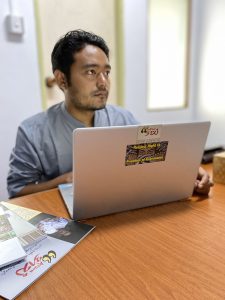
“These statistics show that respect for freedom of expression is declining rather than improving. Our report proves that the highly anticipated government now continues to limit freedom of expression, just like its predecessor did,” said Maung Saungkha, Executive Director and one of the founders of Athan.
Among the prosecutions, 66 were brought against people who openly criticised the Burmese military. The vast majority of these were filed directly by the military against individuals raising criticism online and offline. Several of these cases included accusations against more than one person. In one case from 2019, 25 student activists from Pathein township were prosecuted.
One case which has received significant international attention is that of the satire poetry group “Peacock Generation”. Several members of the group were sentenced to prison and hard labour for mocking the military during a thangyat performance, a traditional form of theatre. Some members of the group face additional criminal charges for live streaming the performance on Facebook.
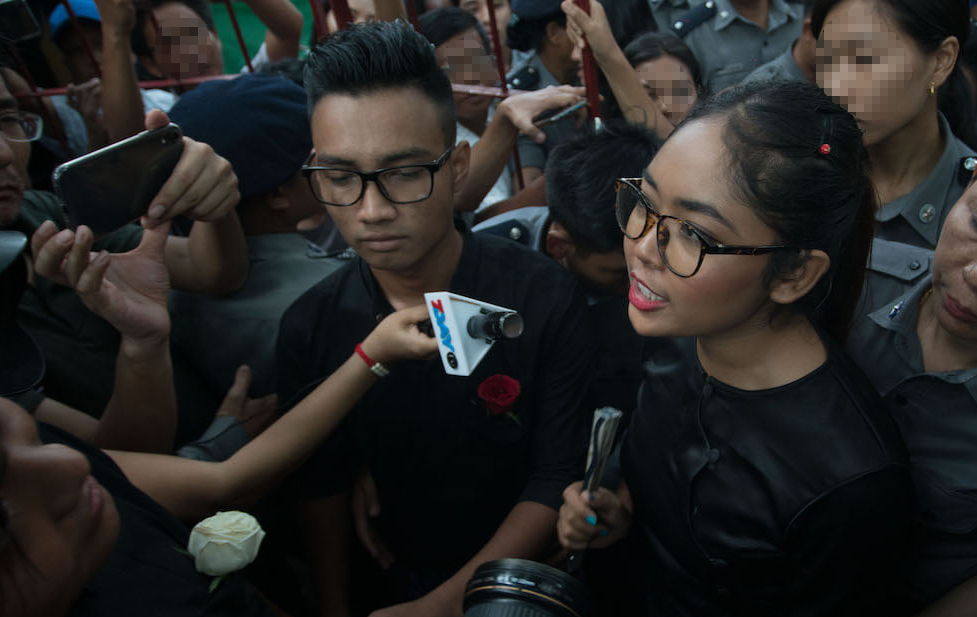
Athan also reports that 67 criminal charges against journalists have been brought since the NLD came to power. Of these, 31 were filed by the government and 11 by the military. In the charges against journalists, the most frequently used law was the Telecommunications Law, followed by the Counter-Terrorism Law.
“Youth activists are among the most active when it comes to standing up for democracy and human rights in Myanmar. And journalists contribute by raising the voice of these activists, as well as uncovering injustice. While the military – the Tatmadow – has subdued such voices for decades, it is also clear that the current government treats these actors as enemies. The government continues to allow human rights violations, not least in ethnic minority regions, and I believe that activists and journalists are targeted because they keep uncovering and exposing such violations,” said Maung Saungkha.
Maung Saungkha is a poet and, under the previous government, was himself sentenced to six months in prison under the Telecommunications Law after writing a poem that was ruled “defamatory” toward the country’s former president. Most recently, on 4 September 2020, Maung Saungkha was sentenced to fines for protesting internet shutdowns in two of Burma’s most conflict-affected states – Rakhine and Chin. But despite the difficult situation, he remains hopeful.
“No one can reject reports of this kind because we base them on real ground data. We believe that this report can draw public attention to the situation and hopefully lead to the amendment of the laws that suppress freedom of expression. We hope that every political party will make freedom of expression a priority in their party manifestoes for the upcoming 2020 general election,” said Maung Saungkha.
Download the report in full here.
